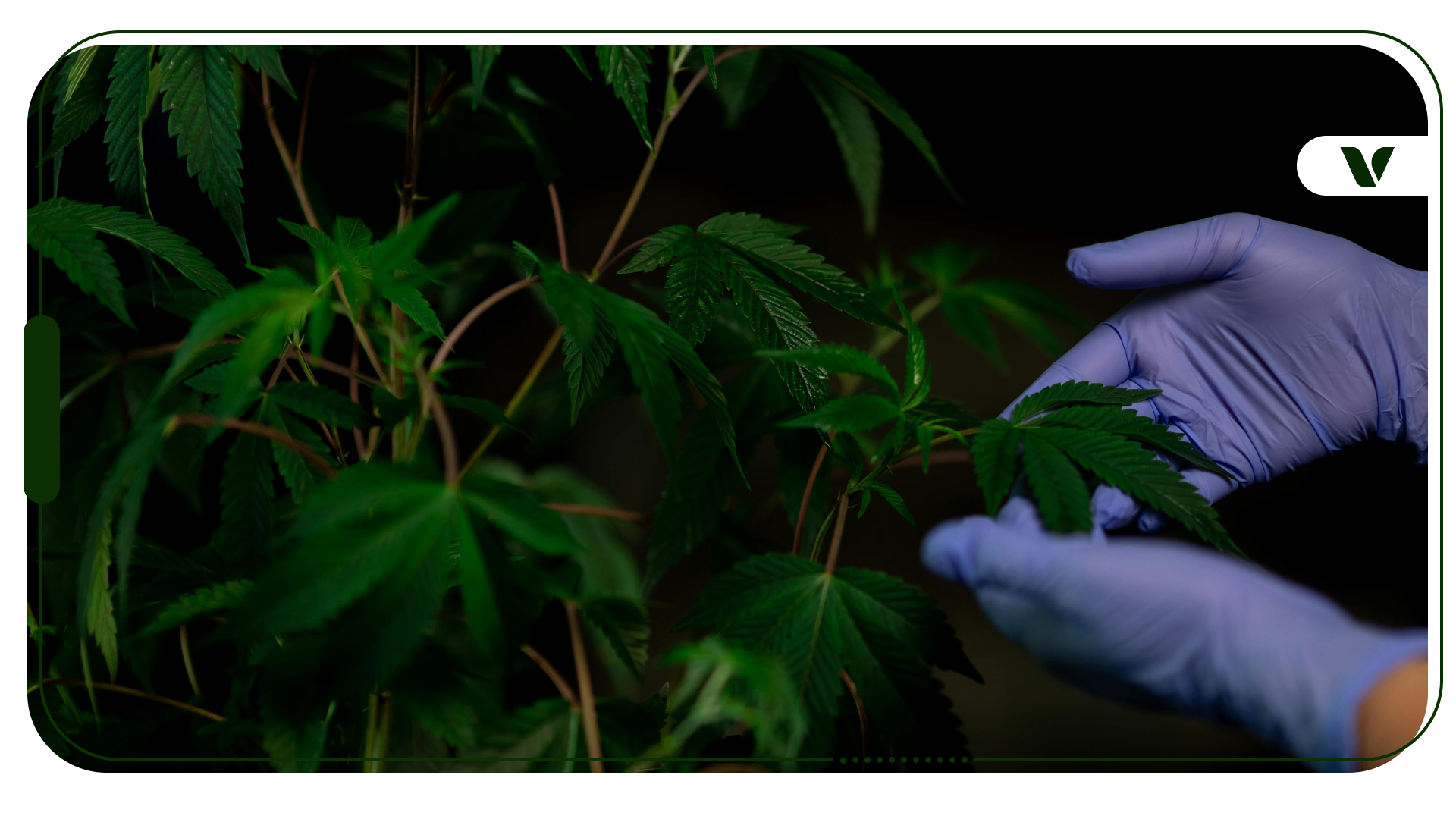Cannabis legalization and rescheduling continue to spark debate across the United States.
Unfortunately, outdated anti-cannabis propaganda is fueling much of this opposition—despite growing research supporting marijuana’s medical benefits and low risk of abuse.
In this article, we debunk some of the most common myths surrounding anti-cannabis propaganda, explore the history of this propaganda, and address the arguments against rescheduling marijuana.
The Evolution of Anti-Cannabis Propaganda
When the U.S. Department of Justice proposed rescheduling marijuana from Schedule I to Schedule III on May 21, 2024, it marked the most significant shift in cannabis policy in decades.
While advocates celebrated, the anti-cannabis stigma remained strong and became increasingly common. But anti-cannabis propaganda has a long and storied history of shaping the public’s perception of marijuana—and even law.
Since the early 20th century, misinformation about cannabis has been deliberately spread, often tied to racial bias and political agendas. One of these is the so-called “Mexican hypothesis”, a widely mistaken belief that Mexican immigrants first introduced cannabis to the US. The reality is that the majority of cannabis in 1910 was already being imported by demand of U.S. pharmaceutical companies from India.
The Mexican Revolution of 1910 indeed created a surge of Mexican immigrants to the US, particularly in the Southwest. However, these newcomers rarely used cannabis for the most part, being more popular among soldiers and prisoners. By then, some of the general population in the US and around the world had long traditionally used cannabis for both recreation and medicinal purposes, as mentioned in media since the 1840s.
Growing anti-immigrant sentiment from economic decline sparked racially charged rumors, labeling cannabis as a “dangerous foreign drug” and linking it to violent crime, which fueled fear among Americans. This hysteria led to one of the first U.S. cannabis bans on June 14, 1915, in El Paso, Texas.
By the 1930s, films like Reefer Madness, backed by Federal Bureau of Narcotics commissioner Harry Anslinger, exaggerated cannabis’ effects, falsely associating it with insanity and crime. However, the real reasons stemmed from the economic downturn of the 1930s; and how Mexican immigrants were competing for jobs and accepting lower wages – leading to the familiar demonization of marginal groups still seen today. This fearmongering helped pass the 1937 Marijuana Tax Act, effectively criminalizing cannabis nationwide.
From the 1950s onward, the propaganda continued evolving, pushing the now-debunked “gateway drug” theory. TV and cartoon PSAs, such as The Flintstones and Teenage Mutant Ninja Turtles, warned kids about weed, ignoring its medical benefits and reinforcing negative stigma.
By the 2000s, anti-cannabis ads turned bizarre, like the Above the Influence commercial featuring a talking dog shaming its owner for smoking.
While discouraging underage use is important, these campaigns relied on misinformation and fearmongering rather than science.
Despite shifting laws, anti-cannabis propaganda is still present today, but history shows that much of it is still rooted in fear, not fact. The history of anti-cannabis propaganda in the U.S. has continued to shape public perception, laws, and racial stereotypes.
While the anti-cannabis messaging has evolved, it still follows the same fear-based tactics. Today, the focus has shifted to framing cannabis as a public safety threat, warning against “Big Cannabis,” and stating exaggerated mental health and comorbid substance abuse concerns.
Breaking Down the Arguments Against Rescheduling
The U.S. Department of Justice is considering reclassifying marijuana from Schedule I to Schedule III, acknowledging its medical benefits and lower abuse potential.
While this would help expand medical marijuana access, support research, and create better business regulations, it wouldn’t legalize recreational use federally. The rescheduling process includes a public comment period and legal review, but legal and political challenges could still impact the outcome.
Opposition to rescheduling cannabis comes from prohibitionist groups like Smart Approaches to Marijuana (SAM), some medical professionals, and GOP (Grand Old Party) lawmakers.
Critics argue that rescheduling is risky, lacks scientific backing, and is politically motivated. Some medical professionals claim marijuana hasn’t met FDA standards for safety, while anti-cannabis lawmakers accuse the Biden administration of prioritizing politics over science.
Even some cannabis legalization advocates oppose rescheduling because they believe marijuana should be rescheduled, but rather than placed in a regulatory gray area.
Ongoing tension will likely continue surrounding cannabis policy until a final decision regarding rescheduling is made—and probably even afterward.
Key Arguments of Anti-Cannabis Propaganda
Some of the key arguments of the anti-cannabis propaganda today and why they are myths include:
Why You Should Get Your Medical Marijuana Card
Veriheal has satisfied millions of patients nationwide by giving them access to these benefits
- Larger purchase limits
- Peace of mind
- Enhanced legal protection
- Access to higher potency strains
- Save up to 25% on cannabis purchases
- Skip the line at the dispensary
- “Cannabis is more potent and dangerous than ever:” A myth being spread about how high THC levels in cannabis are equating to increased harm. However, high-THC medicinal cannabis products can sometimes be more effective for conditions like nausea and vomiting versus lower THC levels. It can also be more efficient and cost-effective for patients with severe needs. In addition, public health improvements would increase by further legalizing cannabis, such as safer access to cannabis products.
- “Rescheduling will unleash a corporate monopoly:” Anti-cannabis propaganda commonly refers to how legalization will cause a monopoly. Instead, it would promote local and small business growth, increase tax revenue, create jobs, and enhance economic benefits overall.
- “Increased cannabis use leads to mental health crises:” Propaganda says that cannabis leads to experiencing mental health issues. However, things like genetics, family history, trauma or stress, pre-existing conditions, environmental and financial factors, sociodemographic, pharmaceuticals, and self-medicating play a big role in mental health issues. Cannabis use does not seem to raise the risk of developing depression, anxiety, or post-traumatic stress disorder, according to cumulative studies. Instead, it is commonly used as a therapeutic agent for these.
- “Legalization leads to more youth usage:” This myth is spread to scare parents away from the support of cannabis legalization. Instead, some studies show discrepancies in Monitoring the Future (MTF) studies results. The results didn’t always match up—MTF findings differed from larger surveys with more states represented. MTF samples a small number of schools, making it less reliable for state-level trends. For example, in Washington, data from the Healthy Youth Survey showed that after legalization, past 30-day cannabis use dropped by 22% among 8th graders, 12.7% among 10th graders, and stayed the same for 12th graders. This not only showed no significant increase, but even significant decreases in youth cannabis use following legalization.
Those spreading this anti-cannabis propaganda also have hidden agendas they aren’t disclosing. Some of the hidden agendas behind these modern prohibitionists include:
- Pharmaceutical industry lobbying to protect profits
- Private prisons and law enforcement agencies benefit from continued criminalization and disproportionate incarceration rates.
- Politicians use cannabis fearmongering to rally conservative supporters.
Anti-Cannabis Opinion Articles Have Become Increasingly Common
Opinion articles, such as one recently released from Yahoo News titled “Don’t believe the lies about cannabis” are becoming increasingly common lately. This poses an issue with false information about cannabis flooding the internet instead of resources for fact-based cannabis education.
This article and those similar to it also rely on fear-based rhetoric and selective data to push their anti-cannabis agenda, misrepresenting science and the effects of cannabis legalization. The article also exaggerates the dangers of cannabis by stating cannabis increases psychosis and emergency room visits, without acknowledging that these trends are often due to improved reporting and higher overall use—not because cannabis has suddenly become more harmful.
Instead, research from the National Academies of Sciences has found no definitive cause-and-effect link between cannabis use and schizophrenia, which undermines another of the article’s core claims. Many with the condition coincidentally use cannabis, or better yet CBD, particularly to help alleviate particular symptoms.
The article fuels unnecessary panic about youth cannabis use, even though studies show no significant increase—and in many cases, a decrease—in teen consumption after legalization, as regulated dispensaries replace unlicensed dealers.
It also misrepresents medical marijuana by claiming companies make false health claims. However, it ignores the fact that FDA-approved cannabis-based medications like Epidiolex already exist. Ironically, rescheduling cannabis to Schedule III would introduce more regulation, tackling many of the concerns raised in the article.
Comparing cannabis to “Big Tobacco” and “Big Alcohol” is also misleading to readers. Unlike cigarettes, cannabis lacks the same addictive chemicals, and its public health risks are far lower than those of alcohol, tobacco, and the majority of pharmaceuticals—which have been legal for decades.
Debunking the Opposition: Science, Medicine, and Politics Behind Rescheduling
The opposition to rescheduling marijuana to Schedule III is mostly rooted in dated arguments that overlook scientific advances, real-world data, and the evolving legal landscape that’s questioning why these anti-cannabis laws were put in place in the first place.
Scientific Backing & Safety: Prohibitionist groups like Smart Approaches to Marijuana (SAM) claim that rescheduling is just a political move without solid scientific backing. However, the National Academies of Sciences, Engineering, and Medicine recognizes cannabis’s medical benefits, especially for conditions like chronic pain, chemotherapy-related nausea, and multiple sclerosis.
Countries like Canada and Israel, where research is less restricted, further validated these uses. Right now, cannabis’s Schedule I status creates a catch-22—scientists can’t study it properly because of the very tight and onerous restrictions that claim it has no medical value. Rescheduling would finally open the door for more thorough research.
Medical Use & FDA Standards: Some medical professionals argue that cannabis hasn’t undergone the rigorous testing required for FDA-approved drugs, making it too risky for medical use. While it’s true that cannabis itself hasn’t gone through the standard FDA process, that’s largely because its Schedule I status makes clinical trials nearly impossible in the U.S.
Despite this, cannabis-based medications like Epidiolex (CBD for rare childhood epilepsies) and synthetic THC drugs like Marinol and Cesamet have already passed FDA scrutiny, proving that cannabis-derived treatments can, and do, meet medical standards.
The notion that cannabis is “too dangerous” crumbles when compared to FDA-approved opioids, which have driven a nationwide addiction crisis. Unlike opioids, cannabis doesn’t share anywhere near the same addictive properties.
Political Motivations: Some GOP lawmakers argue that rescheduling is politically motivated rather than science-driven. But the Department of Health and Human Services (HHS) and the FDA conducted a full review before recommending the change, showing that the decision is based on research, not just politics.
The idea that this is just a move to win over voters also ignores the fact that nearly 70% of Americans—including a majority of Republicans—already support some form of cannabis legalization. And let’s not forget that 38 of the 50 states already allow medical cannabis. The idea that rescheduling sends only political motivation doesn’t hold up when so many states have already embraced its medical use successfully.
Regulatory Concerns: Some cannabis legalization advocates argue that instead of rescheduling, it should be removed from the Controlled Substances Act entirely.
Others worry it will create more confusion between state and federal laws. While full scheduling would be ideal, rescheduling is still a crucial step forward.
Moving marijuana to Schedule III would still make research easier, allow cannabis businesses to access banking services and tax breaks, and provide much-needed clarity for patients and healthcare providers. While it’s not a perfect solution, it’s a major step in the right direction for cannabis legalization.
Key Takeaways
Opposition to rescheduling cannabis is still largely fueled by outdated fears, misinformation, and political pushback—instead of solid scientific evidence and data.
While some groups continue to spread fear-based messages, growing research and real-world data show that cannabis has medical benefits and a low risk of abuse without serious toxicity.
Rescheduling would bring federal policies in line with modern science, expand medical cannabis access, and start undoing decades of failed and unnecessary drug laws.
As more states continue to legalize marijuana, hopefully, this steers the conversation toward the facts and not opinionated articles.
Author, Share & Comments









